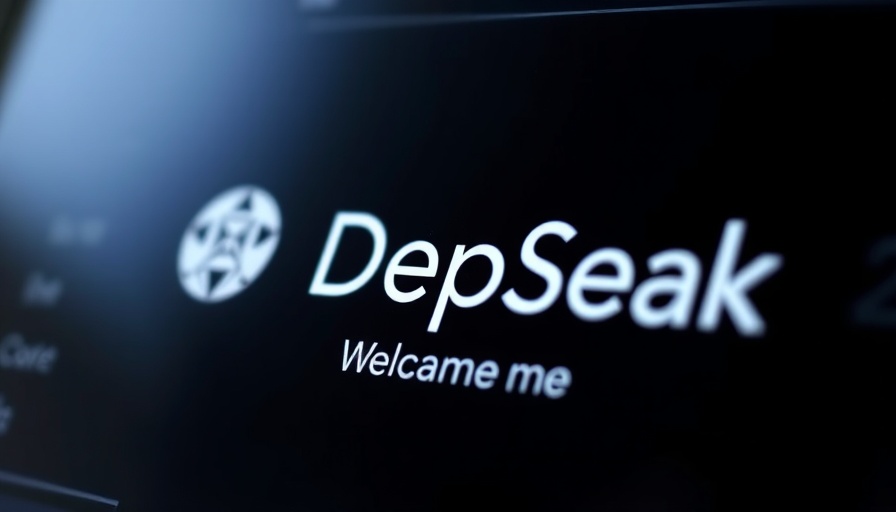
Why Pennsylvania's Treasurer is Taking a Stand Against DeepSeek AI
In a bold move emblematic of growing cybersecurity concerns, Pennsylvania State Treasurer Stacy Garrity has banned the use of DeepSeek AI from all Treasury devices. This decision stems from apprehensions about possible data breaches and potential access by the Chinese government, marking a significant stance for digital security.
The Risks of Using DeepSeek AI
DeepSeek AI, a Chinese-developed platform, has captured attention globally, even surpassing OpenAI’s ChatGPT in downloads on the Apple App Store. However, the rapid rise of this technology has raised alarms among officials regarding its ties to the Chinese Communist Party (CCP). As Garrity pointed out, the Treasury is responsible for billions of dollars belonging to Pennsylvania residents. Hence, ensuring robust cybersecurity is non-negotiable.
The underlying fear is rooted in China's 2017 National Intelligence Law, which obligates Chinese companies to assist in state intelligence efforts. This law fuels apprehensions that personal and sensitive government data may inadvertently be exposed to the Chinese government.
Previous Actions Against Foreign Technology
Garrity’s ban follows prior actions taken against foreign technologies. Notably, a similar prohibition was enacted on TikTok for Treasury devices in 2022 over concerns linked to user data accessibility. These actions showcase a broader trend in government protocols aimed at fortifying cybersecurity in an increasingly digital landscape.
Broader Implications on U.S. Government Technology Use
This ban not only serves to protect Pennsylvania's financial assets but also sets a precedent for other states and federal agencies. As the digital horizon expands, it's likely that similar restrictions on Chinese technology will proliferate, fostering a robust discussion on the implications of foreign-developed applications in U.S. government settings.
The Importance of Strong Cybersecurity Measures
The Pennsylvania Treasury reported over 200 million unauthorized access attempts blocked in 2024 alone, a testament to the growing threat of cyber intrusions. Garrity emphasized that enhancing cybersecurity infrastructure is pivotal to safeguard the state’s financial system. This not only protects resources but also assures the public that their information is being handled with utmost diligence.
What This Means for AI Innovations and Users
While the ban may trigger concerns among AI enthusiasts about the implications for technology adoption, it serves as a reminder of the importance of stringent cybersecurity protocols in government operations. Users of AI technologies should remain aware of the potential vulnerabilities associated with foreign-developed applications.
The rapid evolution of AI raises questions about the security and integrity of these tools. For developers and companies, understanding which technologies align with the stringent requirements of governmental partners is vital for future collaborations.
Final Thoughts: The Balance between Innovation and Security
The decision to ban DeepSeek AI from Treasury devices is a careful balancing act between embracing innovation and ensuring security. As technological advancements continue to influence our daily lives, vigilance against potential cybersecurity threats is paramount.
As we move forward in this digital age, it becomes crucial for users and developers alike to engage in open dialogues surrounding what it means to innovate responsibly while maintaining the highest standards of security.
 Add Row
Add Row  Add
Add 




 Add Row
Add Row  Add
Add 

Write A Comment